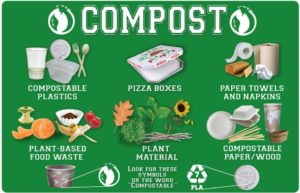In his book Compost Everything, David the Good suggested that you can compost a ridiculous variety of materials in a wide range of outrageous ways. Food for your soil is everywhere. Unfortunately, this potential fertility often hits the trash rather than completing the nutrient loop and making its way back into the ground. If you hate the trash you create, this book is for you. If you are a rule-breaker and a visionary, this book is for you.
[easyazon_infoblock align=”center” identifier=”1955289034″ locale=”US” tag=”bestgardencomposter-20″]
Table of Contents
Compost Everything: Reasons for Composting:
There are lots of reasons to compost and this book gives you many reasons. First of all composting saves money. You save on water, fertilizer, and trash services. More importantly, it reduces household waste.
You can use paper, cardboard, and anything organic. This means fewer bags of trash and less smell from your trash cans.

Composting saves fuel. When you compost less trash from your household needs to be hauled away.
You will also be saving on home energy costs. Homemade compost keeps you from traveling to buy factory-made fertilizer (which also takes energy to produce).
In fact, since fertilizer is made from mined minerals (which also takes energy), which is then packaged (with more energy requirements).
Composting is enjoyable. It is also safer. Purchased compost usually contains everything from pesticides to herbicides to weed seeds and heavy metals.
These aren’t what you want to put in your garden and certainly, don’t want in your food.
Composting saves water since the new soil significantly increases water retention.
Information Link: Guide to Extreme Composting
Compost Everything: Feeding the Microorganisms in the Soil

They are an important and vital part of soil’s health.
There is a great big web of life with many checks and balances and by adding compost you will keep this web happy and active.
More nutrition in the soil equates to more nutrition in vegetables, resulting in more flavor.
In fact, you can literally taste the difference between vegetables grown in poor soil and vegetables grown in nutrient-rich soil.
Compost is like using a slow-release type of fertilizer.
Wouldn’t you rather put a natural fertilizer on your vegetables than some chemical fertilizer?
In fact, chemical fertilizers rapidly leach through the soil and beyond the root zone, upsetting the microorganisms.
With a natural composting fertilizer, you will get a gentle flow of nutrition into your plants.
Composting makes your plants happier and healthier.
Composting Video:
Look at all The Great Composters!

